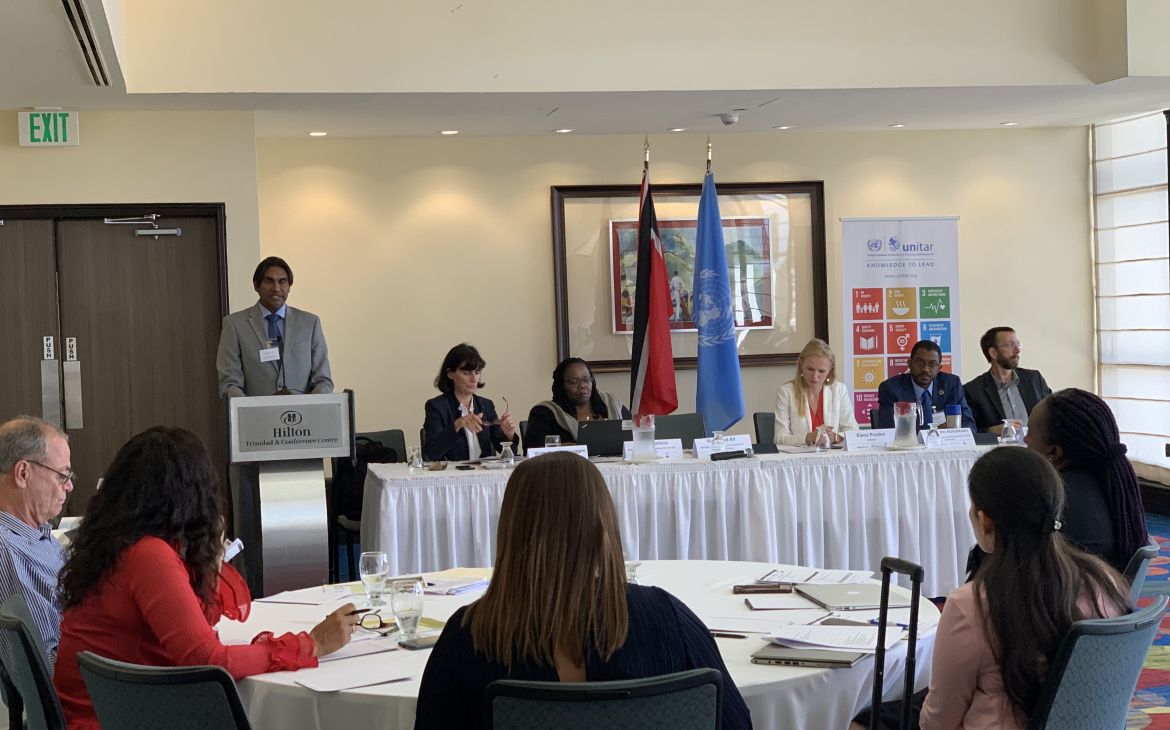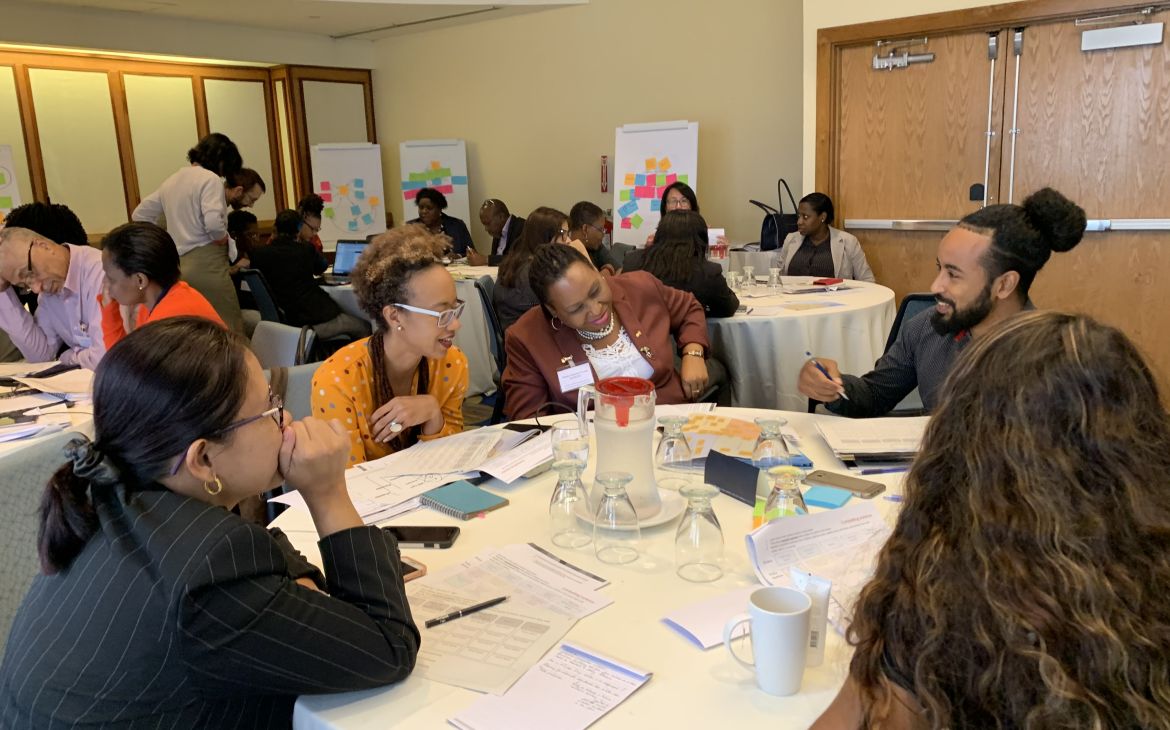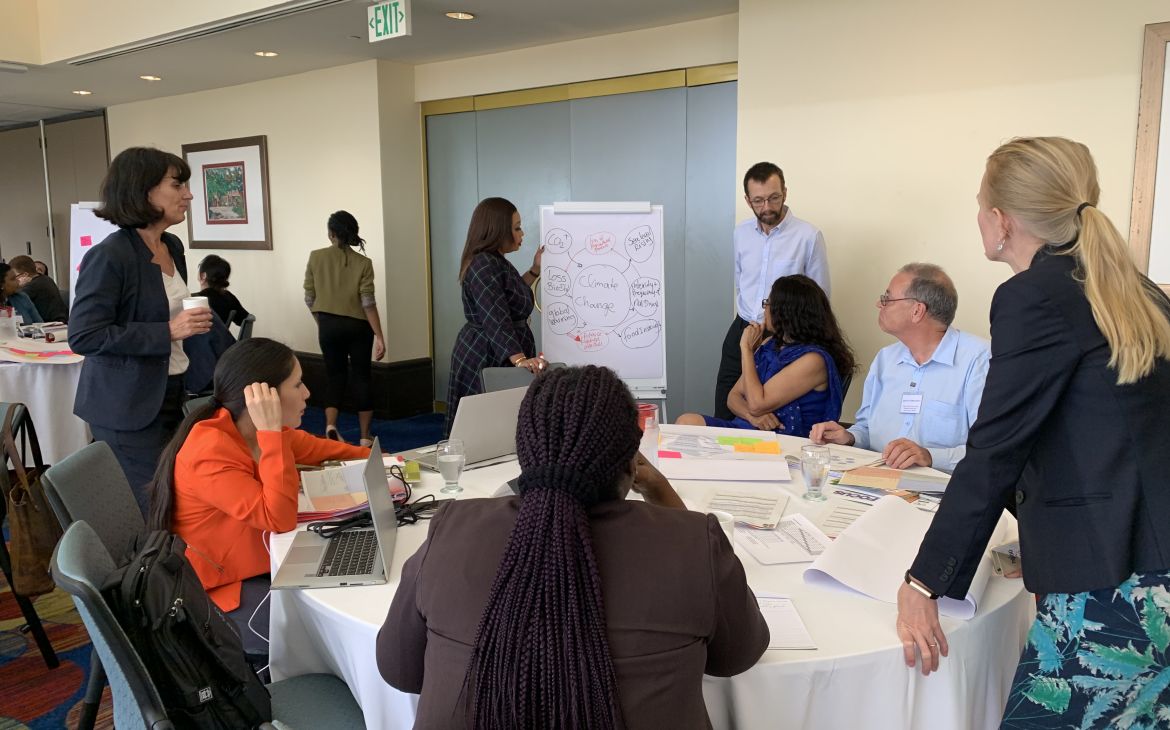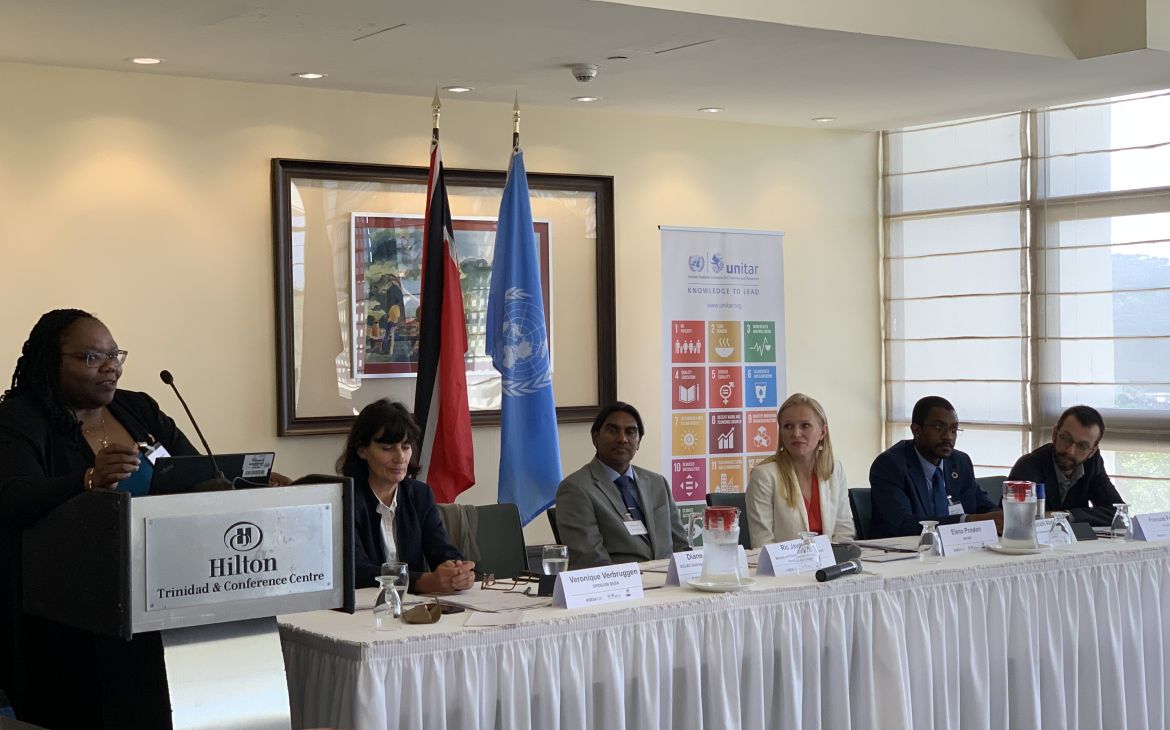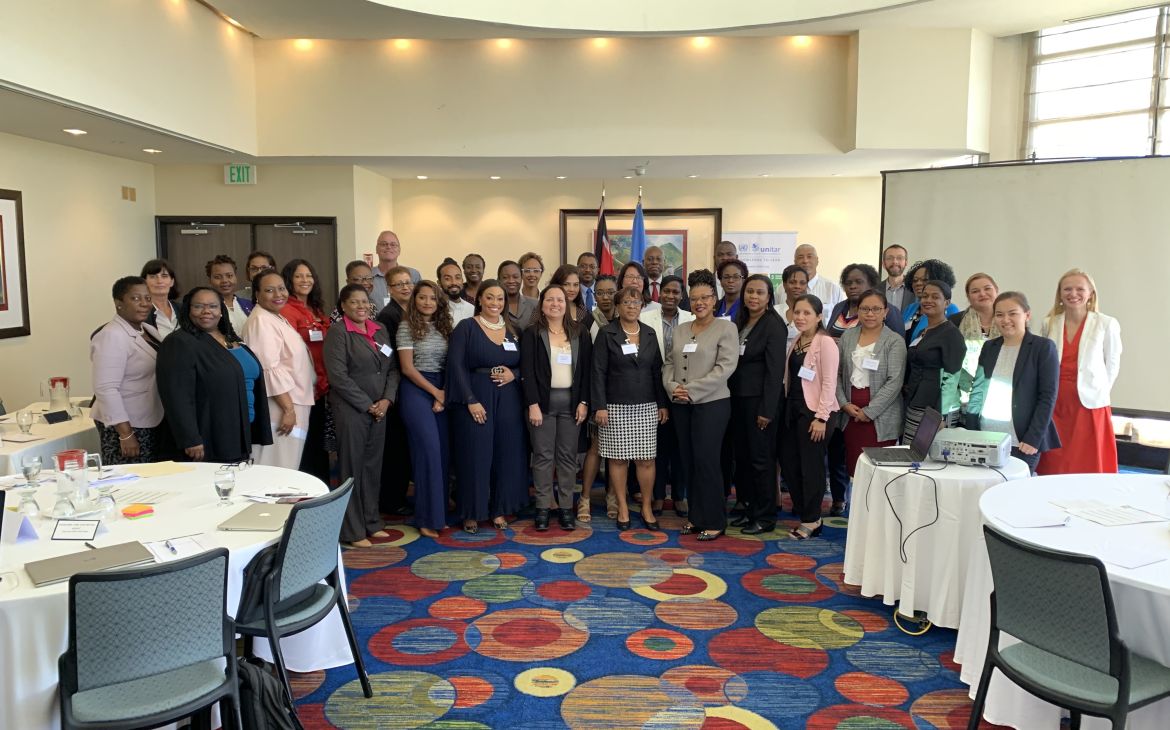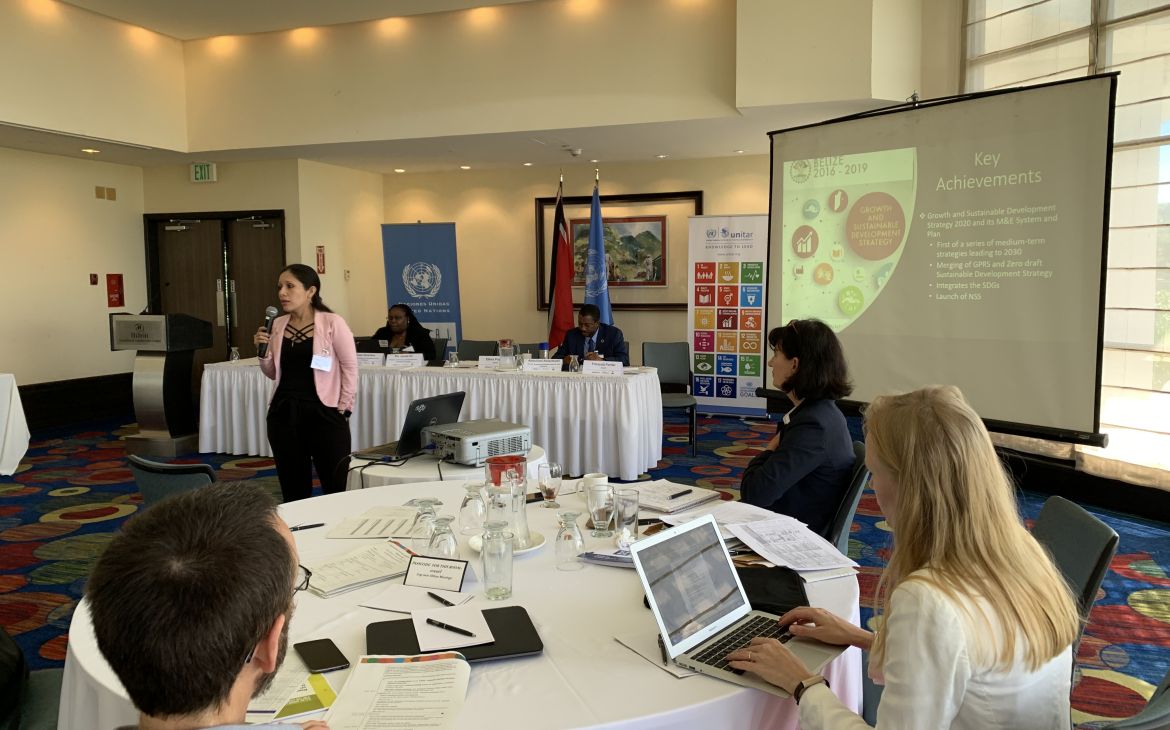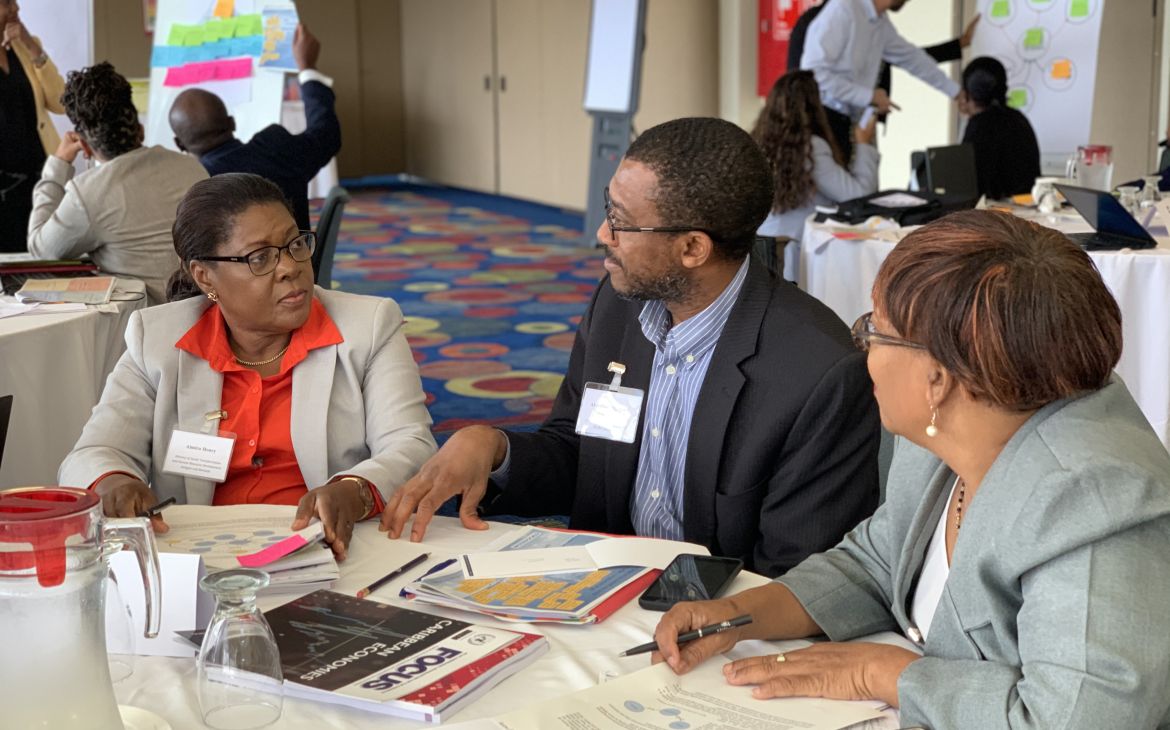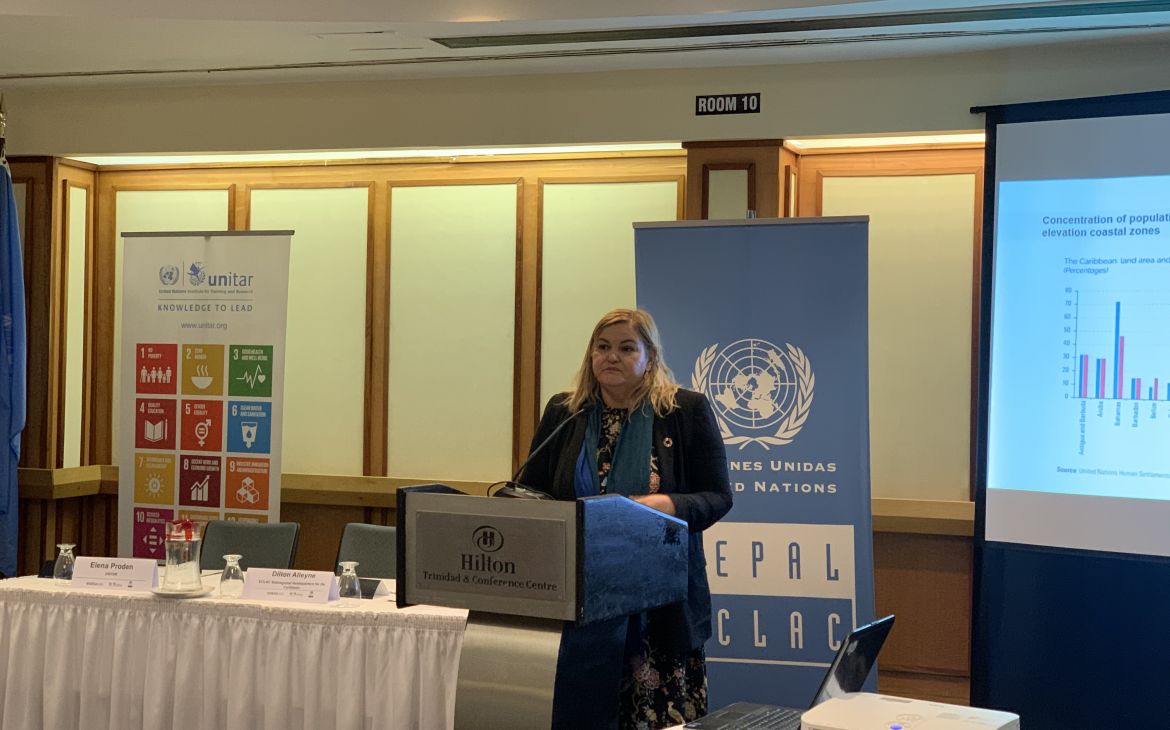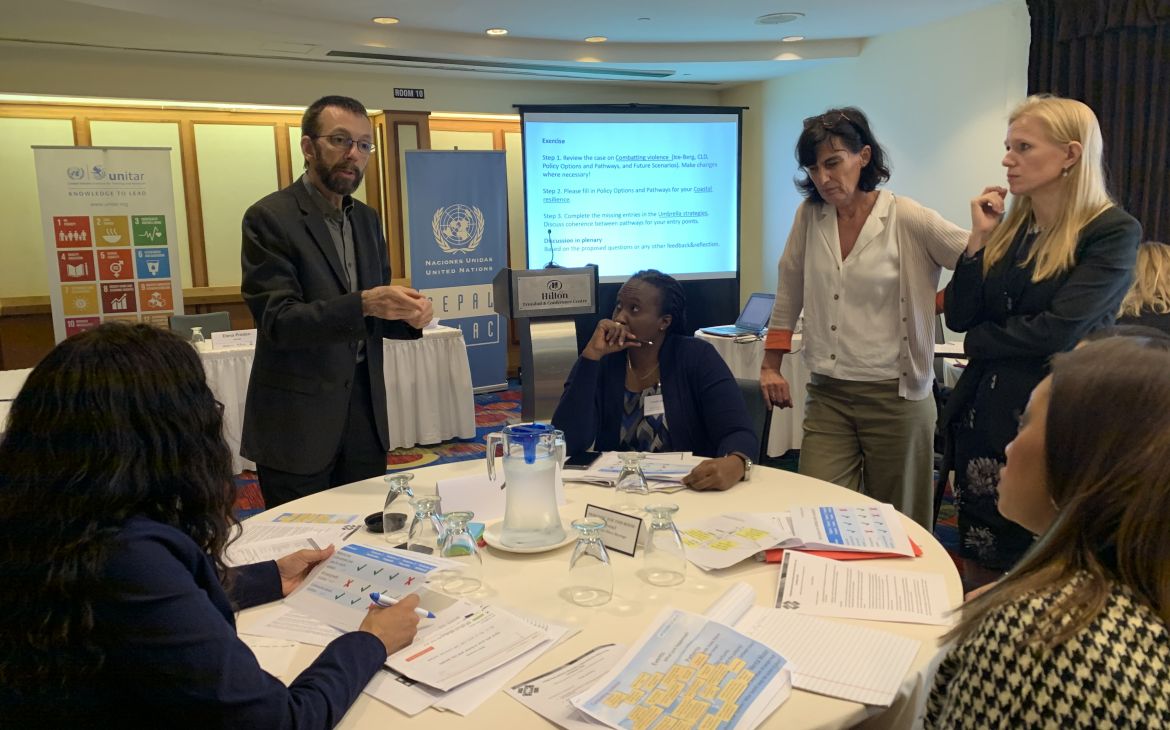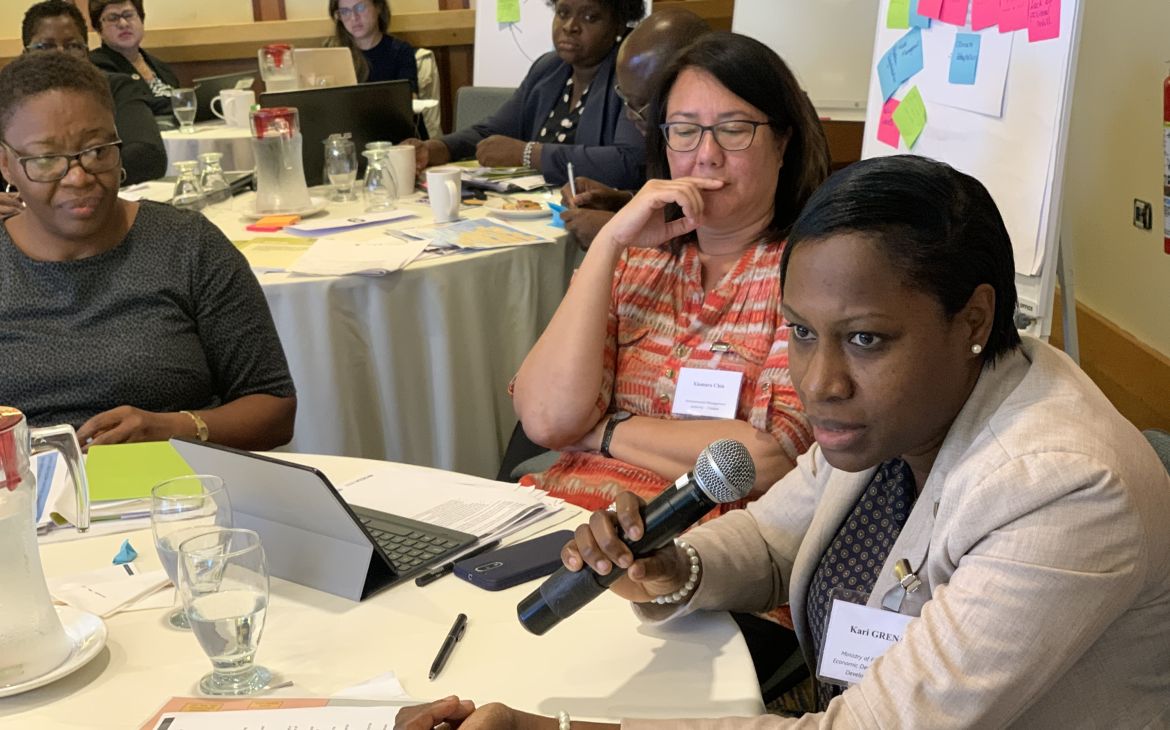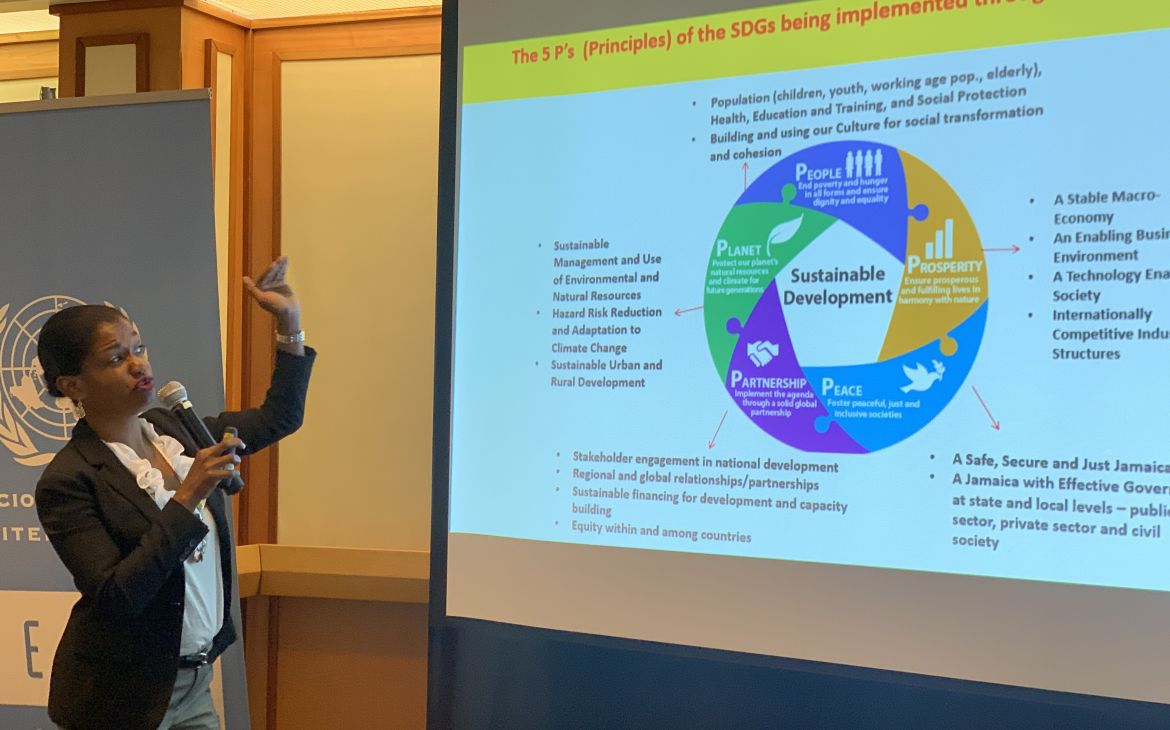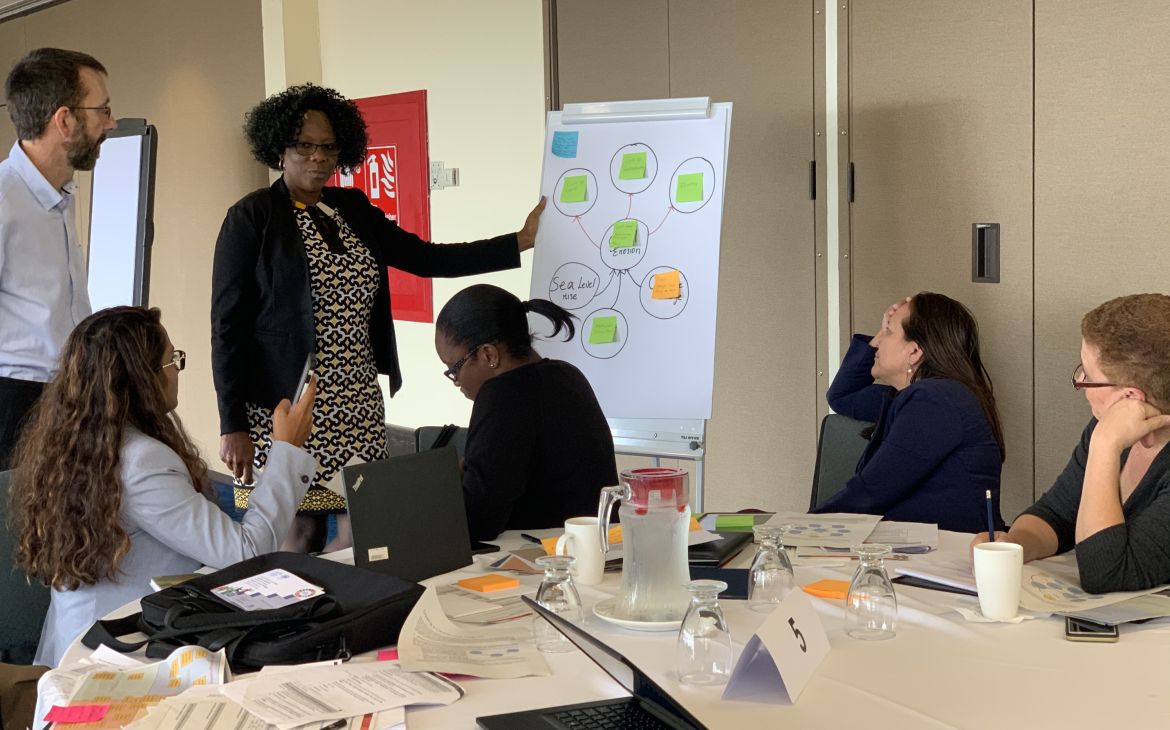On 13-15 November 2019, UNITAR with the Division for Public Institutions and Digital Governance (DPIDG) of UN Department of Economic and Social Affairs (UN DESA) and UN Economic Commission for Latin America and the Caribbean (ECLAC) as partners on board conducted a training workshop on Integrated policies and policy coherence for SDGs for the Caribbean SIDS.. This three-day regional event held in Port of Spain, Trinidad and Tobago, aimed to strengthen the capacities of senior government officials to promote an institutional shift in their countries from linear planning processes to system-based analysis and approaches critical to integrated policy-making and the successful implementation of the SDGs.
The workshop was conducted for 13 SIDS countries, including 10 Caribbean Development and Cooperation Committee (CDCC) Members - Antigua and Barbuda, Barbados, Belize, Grenada, Dominica, Jamaica, St. Lucia, St. Vincent and the Grenadines, Suriname, Trinidad and Tobago - and 3 CCDCC Associate Members - Aruba, British Virgin Islands, St. Maarten. It brought together 32 country participants from Ministries of Planning and Finance, National Statistical Offices, line ministries, as well as the representatives of international organizations. It commenced with the welcoming remarks by Mr. Ric Javed Ali, Assistant Permanent Secretary, Ministry of Planning and Development of Trinidad and Tobago, as the host country for the workshop. The respresentatives of the organizing partner agencies Ms. Elena Proden, Specialist, Strategic Implementation of the 2030 Agenda Unit of UNITAR, Ms. Veronique Verbruggen, DPIDG of UN DESA and Ms. Diane Quarless, Director, Subregional Headquarters for the Caribbean of ECLAC, welcomed the participants of the workshop emphasizing the importance of the training for the countries in the area of integrated policies and policy coherence for the region and expressing a hope that the workshop will also provide ample opportunities for knowledge and experience sharing between the countries.
The workshop was designed leveraging a system thinking based methodology to demonstrate how it can be used in national planning processes and initiate a discussion on how it can also be trickled down to budgeting practices and M&E systems throughout the policy cycle. The poster session and country highlights on Day 1 has enabled participating countries to discuss challenges, achievements and innovative practices and was complemented by a number of key concepts and an introduction into the ovrall approach. This has prepared the ground for a more detailed application of the methodology on Days 2 and 3 through a step-by-step guidance on stakeholder engagement, a system-based analysis of root causes and the development of scenarios of coherent policies and integrated national strategies. The readiness assessment questionnaire developed by UN DESA helped participants to review and take stock of their current situation in terms of institutions, practices and processes and how well they may be contributing to greater policy coherence.
The workshop methodology builds on the earlier national pilots underataken by UN DESA and the regional workshops implemenetd by UNITAR and UN DESA in June 2019 for 10 African countries. In addition, Belize, Grenada and Jamaica have provided robust case studies to learn from on systemic frameworks for SDG prioritization, sustainable development legislation, short-term and long-term approaches to strengthening data systems, inclusive stakeholder engagement contributing to the sustainability of development planning and the identification of and work with accelerators to ensure greatest impact across all SDGs through well targeted interventions.
A joint team of resource persons composed of the repsenrestatives of ECLAC, UN DESA and UNITAR has facilitated the workshop, including Mr. Francois Fortier, Mr. Abdullahi Olabode Abdulkadri and Ms. Catarina Camarinhas from ECLAC, Ms. Veronique Verbruggen from UN DESA and Ms. Elena Proden and Ms. Madina Imaralieva from UNITAR. The methodlogy combined short theoretical introductions with case studies and hands-on activities involving the development of system maps showing the complex linkages between a selected entry point and root causes and possible interventions. It also provided space for countries to interact and share and learn from each other’s experiences.
86% of the trained participants found the workshop very useful. The training toolkit used during this workshop and previous pilot in Addis Ababa will be published as a free of charge resource available to UN Member States, and other interested stakeholders. Furthermore, several countries have expressed an interest in running similar workshops and/or applying the methodology at the country level with support from UNITAR, UN DESA and ECLAC.
The presentations used by resource persons from UNDESA, ECLAC and UNITAR are part of the joint open-source training toolkit developed by partners around a system-thinking inspired methodology for designing integrated policies at country level in a participatory manner.


